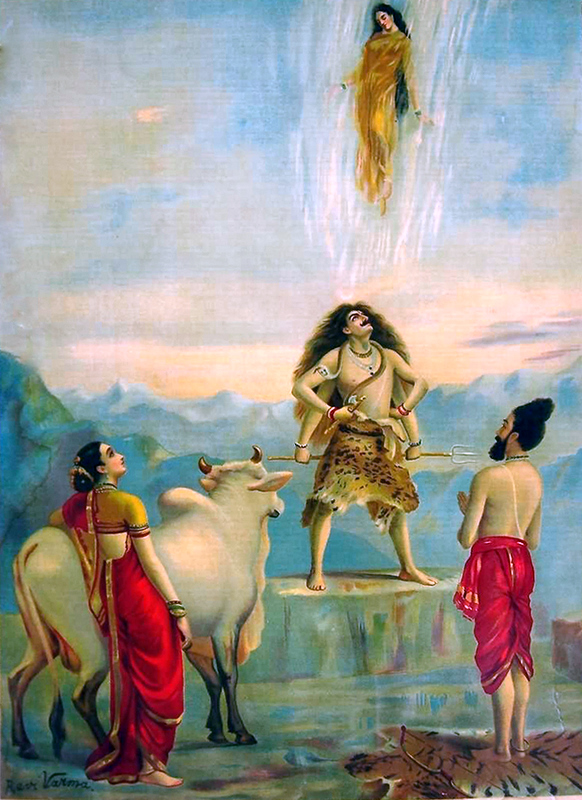The Shanti Parva
After the battle it was time for the coronation of Yudhistira. Peace and tranquility came after, but the story was yet to end. Yudhistira found Krishna upset and moody. He said that he realizes with the coming of Urtarayana, Bhishma will sacrifice himself. Bhishma was the keeper of knowledge for the world. Also kingship and human conduct; so when he passes away it will be gone with him forever. Krishna warned him there was not much time left.
While Brishma was speaking his final words to Yudhistira he showed much affection and spoke to him on the duties that were necessary for a king. It lasted for several days, and when he was finished he told everyone farewell and took his last breath. Yudhistira took his body and took the arrows off of it. Then he performed the obsequies due the eldest member of the family. He cremated his body on the bank of the river Ganga. The Goddess who was Brishma’s mother appeared again to take his soul and send it to his original home in the place of the celestials.
Following his deaf, Yudhistira ruled for thirty-six years. At the end of his 36th year his uncle, Dhritarashtra showed a desire to to adopt vanaprasha and live out in the woods with Gandhari and his brother’s wife, Kunthi. Yudhistira made sure all of their requests were made and he visited them frequently. He watched over their belongings too. One day, there was a forest fire and somehow Dhritarashtra, Gandhari, and Kunti all died.
Meanwhile Krishna’s clan, the Vrishnis, destroyed themselves in a civil war, and nobody even remembered them because they left no trace of their existence. Krishna them left himself like he foresaw. While he was on the bank of the river, he was in deep thought. Lying on the sands, a hunter that was a distance away confused the soles of his feet for a bird and shot an arrow at them killing him. Depressed by all of the news the Pandavas decided to leave the world. One by one they died and Draupadi did too.
Yudhistira found himself to be all alone, and he was gifted the power to go to heaven in his eartly form. On his way there he saw many familiar faces. The last person that was there to take charge of Hastinapura was the son of Abhimanyu, who had protection of Krishna. He grew up to be the King and further continuing the Pandava lineage.
Author's Note
This week I decided to retell the ending of R. K. Narayan's version of the Mahabharata.
I chose to do the ending of this story because I like how in the end of the story when you thought that everything was over it actually wasn't. In the Epilogue, the story is contunied further on a bigger time scale and we learn of the deaths of everyone except Yudhistira. He went to heaven and there was only one person left to rule. It was neat how the Pandava line was still passed on in the end. It is a true never ending story.










